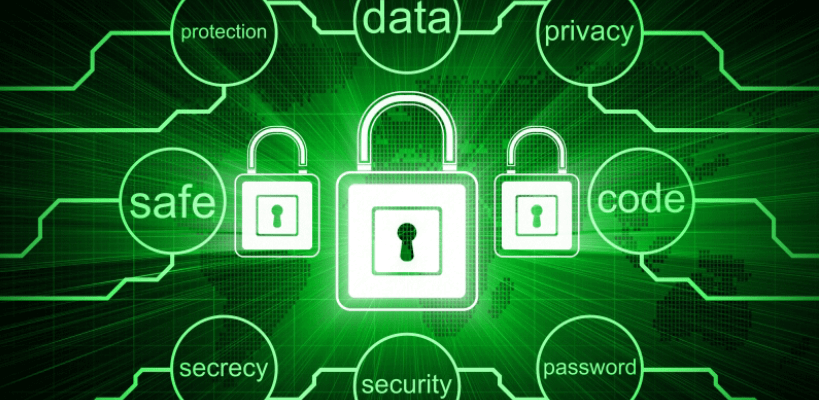Encryption is nothing new. As far as military historians can tell, we’ve been mixing up our messages to protect information for around 2,500 years. The CIA is particularly proud of artist Jim Sanborn’s Kryptos Sculpture puzzle that that even the most powerful NSA tools and minds are yet to completely decipher. But encryption isn’t just for military operations, spies, and their governments. These days, encryption is a commodity traded on the open market. Industry’s better, faster, and cheaper encryption tools are great for the economy and fun to use. Of course, the better industry does, the more difficult it is for law enforcement and intelligence agencies to protect us. It’s a conundrum, an indecipherable puzzle.
The House Homeland Security Committee’s on it. More specifically, the McCaul – Warner Commission On Digital Security is on it. Yesterday, the Commission just released its latest report on encryption and security, Going Dark, Going Forward: A Primer on the Encryption Debate.
THE PROBLEM
The problem’s pretty simple. It’s as old as the All Writs Act of 1789. On the one hand, we have a constitutional right to privacy. On the other hand, for the good of society, for the good of society’s security, the constitution also allows law enforcement the right to know what we’re up to inside our homes, inside our computers, inside our cell phones when there’s a good enough reason: probable cause, a good enough reason to think we’re doing something illegal.
It’s a nice balance, theoretically, but problems arise when law enforcement crosses what would-be criminals or law-abiding citizens consider the line of unlawful search and seizure—that is, there’s an argument that there really was no probable cause to knock down the door on my home to see what’s up, or to surreptitiously read my e-mail. And that’s where encryption becomes problematic. It’s fine for law enforcement when your code can be cracked when there’s probable cause, so legal snoops can get a look inside. But as technology gets better and better—which means it’s a more and more valuable commodity—then encryption is becoming the impenetrable door that all the gusto of law enforcement and the intelligence community can’t bring down. When bad actors leverage the technology for nefarious purposes, that’s what FBI Director James Comey calls “Going Dark.” Going Dark means there’s damn good probable cause, but law enforcement just can’t kick down the door. Basically.
THE COMMISSION
That’s where the Digital Security Commission Act of 2016 came in, and that’s where the McCaul – Warner Commission On Digital Security came from. The McCaul – Warner Commission (the Commission) is a bi-partisan commission meant to untangle all these competing interests, and it’s a tough code to crack. According to H. R. 4651, the Digital Security Commission Act, the new Commission is supposed to consult national and international experts on this question of encryption and law enforcement. It’s to examine the value of encryption and cryptography to our economy. It’s to determine encryption in regard to the relationship between our civil liberties and the needs of law enforcement. The Commission asks what weakening encryption would mean economically speaking and in regards to law enforcement and civil liberties. And the Commission may recommend changes to policies and laws in order to achieve the right, constitutional balance between encryption as commodity, encryption as right to privacy, and encryption as penetrable door for law enforcement.
As the Commission’s two-page one-pager explains, the Commission asks, “How can we keep our data safe while also keeping our country safe?”
THE REPORT
Going Dark, Going Forward: A Primer on the Encryption Debate is essentially the Commission’s formal opening statement to begin what should be a national discussion. The report works to examine every side of the encryption argument. The reports puts encryption in context of the economy, in context of public safety and law enforcement, and encryption in international context. Its conclusions? This is a tough, complicated problem, and building a consensus on any solution is going to be difficult. As the report explains, “Many had hoped that a dialogue among the key stakeholder interests surrounding encryption and national security . . . would develop organically. But no such dialogue has begun.”
Going Dark, Going Forward is, at least, a fair beginning to that discussion, and definitely required reading.


